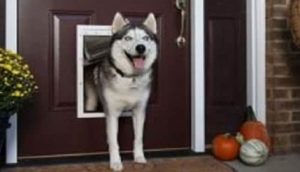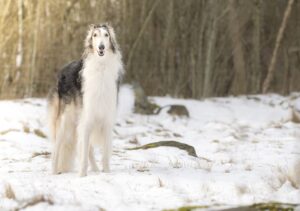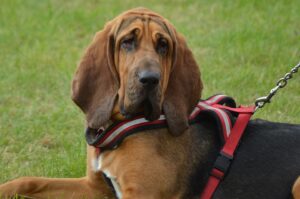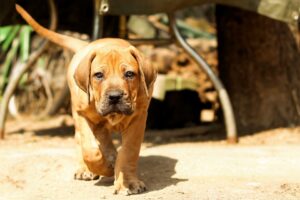WHY IS MY DOG MAKING A HONKING SOUND?
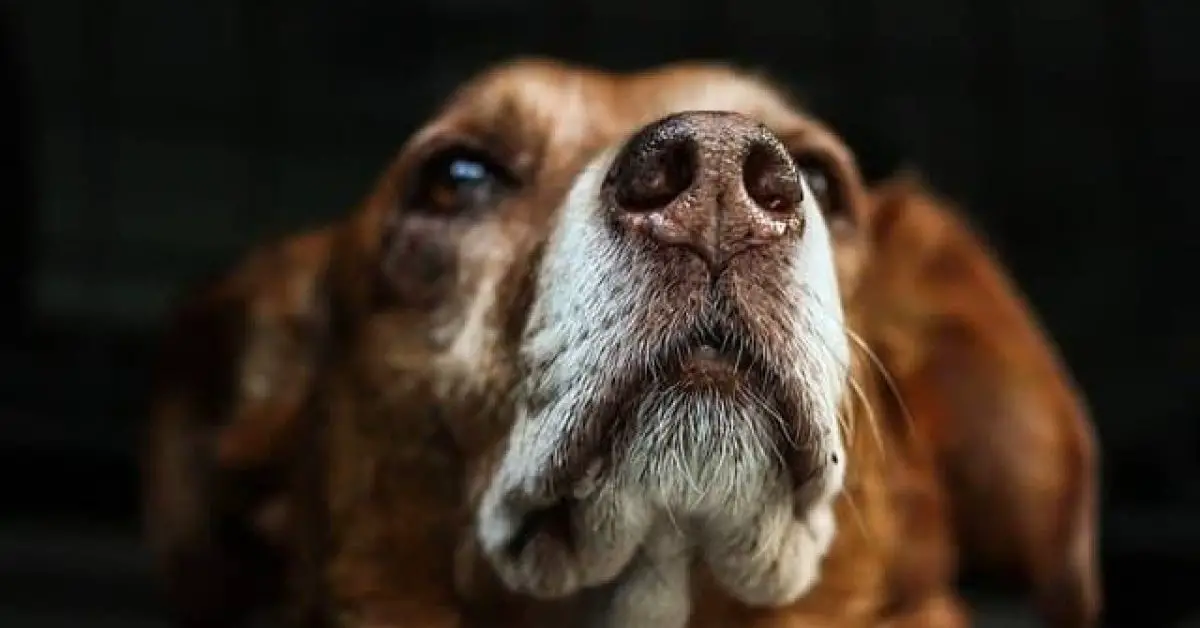
Your dog has been making honking sounds for a while and you are becoming worried about the situation. This strange sound as if a duck is quacking or a goose is angry can be both nauseating and worrisome. Instinct tells you that this honking sound might be linked to a respiratory problem, but you cannot confirm this. Not till you have contacted a professional on the issue. So what is this honking sound and more importantly “Why is my dog making a honking sound?”
The honking sound you are hearing is called reverse sneezing, Pharyngeal Gag Reflex, or Paroxysmal Respiration. The good thing about it is that it does not require medical treatment to correct it. The bad thing about it is that it can be an indication of a more serious problem.
Telltale signs of reverse sneezing are quite obvious. From your dog extending its neck to them gasping, snorting, making loud grunting sounds, chest expanding to get in more air into the lungs, eyes bulging, and much more.
This happens because your dog is having a problem taking in air through the trachea. This is usually due to the trachea being narrowed at this point. There are many things that can cause the trachea to get narrow and we are going to address these options in this write-up.
1. Intensified excitement.
If you are observant of your dog, you see that they exhibit characteristics that almost seem superhuman when they get excited. They can exert themselves physically in a way as if they do not have limits. On average, a dog breathes in and out between 14 to 35 times per minute. Anything that causes your dog to breath faster than this can narrow your dog’s nasal cavity temporarily and force mucus into their nasal cavity leading to your dog making the honking sound.
2. Improper digestion.
This problem is a very common one in dogs and can manifest itself in different ways in a dog. Dogs breeds like pug, English and French Bulldogs, Mastiffs, and Shih Tzus are prone to this problem due to their small snouts and the structure of their bones, especially the neck bones.
Improper digestion is usually characterized by the reverse flow of food in the digestive system which can lead to the temporal blockage of the nasal cavity causing your dog to reverse sneeze or honk.
3. Tugging hard on your dog’s leash.
Generally speaking, tugging hard on a leash is a bad practice that leads to a dog developing emotional and behavioral problems.
That aside tugging hard on your dogs leash can cause physical problems on your dogs neck. The neck is the passageway to the dog’s respiratory and digestive systems. Tugging hard on this region with a leash can easily lead to the temporary collapse of the nasal cavity and make your dog honk.
4. Mites.
If you find your “puppy honking like goose” or keep wondering why “my dog is making squeaking noises“, the cause might just be mites.
What are mites?
If you have come across a stray dog itching and scratching themselves, it’s likely they are suffering from a mite infestation. Mites cause a lot of problems to dogs but the type that can make your dog honk or reverse sneeze is called Canine Nasal mites or Pneumonyssoides Caninum.
Other signs of mite infestation in a dog include but are not limited to labored breathing, nasal discharge, Impaired sense of smell, and sometimes bleeding from the nose.
5. Unfamiliar bodies in dog throat.
If your dog makes honking sounds or your “dog making noise like something stuck throat” then he or she might have Unfamiliar bodies caught in their throat.
Plastics, rubber, papers, etc. these are all bodies of things that cannot be properly digested by dogs. If your dog has access to these things and you have not been able to get things under control, your dog will chew on them leading to your dog having objects or bodies that cannot be digested lodged in their throat.
There honking or reverse sneezing in this situation is usually an attempt to free up the airways here from the foreign object.
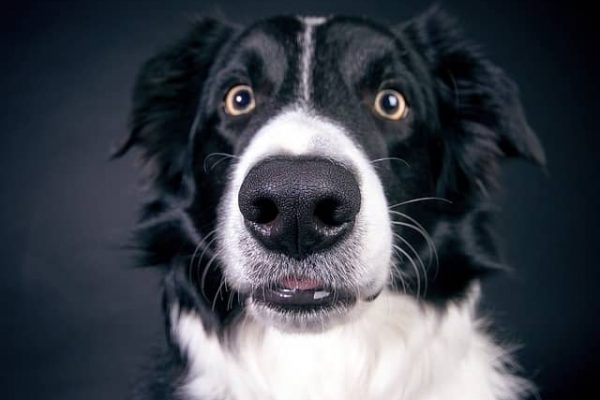
6. Colognes and Environmental Irritants.
Colognes contain ethanol and essential oils, the two are known to be harmful to our dogs. Ethanol especially is known to be dangerous to our dogs and apart from irritating the airways of your dog and making them honk, it can easily lead to death. So while you spray yourself with that expensive cologne in preparation for that special event, be sure to keep your dog out of the vicinity for the time. In fact, you will find that you may not need to do such as your dog is likely to leave your area when you start spraying the cologne.
Environmental irritants can also lead to your dog honking. Mold spores, pollens, dust mites, etc. These affect your dog’s immune system directly even though they are taken into the dog’s body by the dog breathing them in. Dogs in the first to third year of their lives are more prone to the risk of environmental irritants. Other signs that your dog may have been affected by environmental irritants include but are not limited to skin inflammation and extreme itchiness.
The main way to manage environmental irritants is to clean up your dog’s environment and make sure that possible sources of irritation do not have the possibility of gathering in the environment again.
7. Viruses.
Your “dog making honking noise at night” and during the daytime can be a result of viruses. Dogs and puppies can become infected through virus particles in the air, respiratory secretions, or dogs that have already been infected. Some of the signs that a dog has been infected include but are not limited to runny eyes, fever, a snotty nose, coughing, vomiting, diarrhea, seizures, and paralysis.
The best way to make sure your dog does not get infected with a virus is to keep their environment and diet clean and hygienic. Dogs that are already infected would need to be placed on some sort of medication. Liaise with your vet doctor to get professional advice if this is the state of your dog.
Now we have answered the question “why is my dog making a honking sound?” the next thing is how do you actually manage this situation.
HOW TO DEAL WITH MY DOG MAKING HONKING SOUNDS.
The good thing about a dog honking or reverse sneezing is that in most cases you do not need to do anything, the situation usually resolves itself. You may assist your dog through the period by gently stroking their neck and their back.
If you have a good bond with your dog, you may consider closing the nostrils for some seconds. Your dog would be forced to concentrate on freeing up the airways through the mouth, making them apply more force in the expulsion of anything causing the irritation.
If you want to take things to the next level, you can take the steps below to reduce the possibility of your dog honking.
Keep surprises and unplanned activities to a minimum in the house, for example, a calm environment helps dogs to develop good mental awareness and make them less prone to being over-excited at things.
Use food bowls designed to make your dog eat slower, eating slower helps your dog to digest the food properly. Your dog is also able to enjoy the food properly and this alone reduces the possibility of your dog honking.
Bath and groom your dog on a regular basis, but more importantly, make sure to clean the dog’s surroundings constantly. Grooming your dog properly keeps his or her body free of any infestation and cleaning the surroundings properly makes it so that things that can cause allergies and insects and organisms that can cause virus infection would not be able to survive around the dog’s abode.
Invest in quality dog leashes. A good dog leash is shock-absorbing, this helps to reduce the stress on a dog’s neck when they tug on the leash whether consciously or unconsciously. You should also take your time to learn good dog walking techniques.
Avoid exposing your dog to colognes and environmental irritants. Simply put, the colognes you are using are always out of reach to your dogs, and even when you use them make sure your dogs are not around you. To manage exposure to environmental irritants, you may consider avoiding walking your dog through grass and meadows, places that are dusty, and places you suspect might have insect infestations. To make this easier, consider engaging your dog in a dog obedience training program if you are not doing so already.
Make sure your dog is up to date on their vaccinations and also visit your vet clinic regularly with your dog. This way, you are able to track and deal with any health issues that can lead to your dog honking proactively.
Now there are other sounds your dog can make apart from honking, we have summarized some of them below so that you can be informed if you are faced with any of them.
Baying
This is a long, deep, and throaty barking noise some dogs make when they are chasing after a prey to let their human companions know that they are onto something. It can also be made when a dog suspects that there is a threat. Examples of dog breeds that bay are scent hounds like Bassett Hounds, Beagles, Bloodhounds, and Foxhounds.
Snorting
This is a sound similar to sneezing but in the case of snorting, it is usually voluntary and a dog’s way of trying to expel out an irritation, dirt, allergen, etc. Honking as we explained earlier is mostly involuntary. An occasional snort here and there is not something to worry about, but if you find your dog snorting a lot, then the best thing you should do is to contact your vet doctor as this is an indication of a more serious health issue.
Snoring
Snoring in dogs while sleeping is usually due to Sleeping positions, Obesity, Allergies, respiratory problems, cold, or some form of illness. Short-muzzled dogs like Bulldogs, Shih Tzu, and Pugs are known to snore a lot. It is best to talk to your vet doctor and get the situation checked out properly. Sometimes, what your dog needs is a comfortable bed or spot to sleep in, but you will have to check to confirm.
Gagging
This is one of the more serious sounds your dog can make. It usually shows that your dog is choking on something and needs immediate attention. Usually, the pet version of the Heimlich maneuver can be used to resolve this problem.
Sleep Barking
This is usually a reaction to something your dog is experiencing in its dream state. You can learn more about this by reading this WHY DOES MY DOG WHIMPER IN HIS SLEEP?
DOG CARE
DOG PRODUCTS
DOG BREEDS
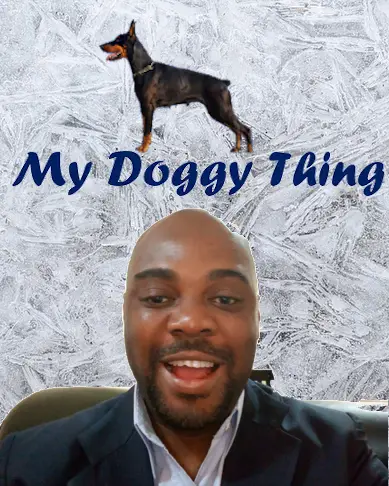
Hi, I am Charles Nwankwo Editor-in-Chief, Mydoggything.com. Gleaning from Professional Dog Trainers, behaviorist, Registered Veterinarians, and Breeders. We are passionate about making dog care easy for you. My job is to make sure that you get the best-updated dog care information to understand and take care of your dog or dogs.




